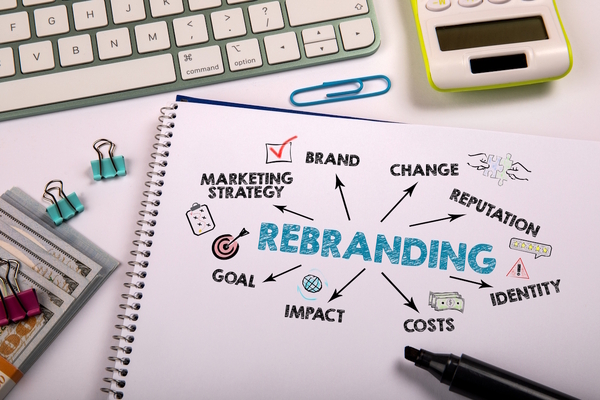Three practical steps to support working mothers

As a mother who has raised three children, Ann Sung Ruckstuhl at Manhattan Associates offers some practical advice for businesses that want to retain this valued group of employees
According to recent reports, as many as two-thirds of working mothers say their career stalled after having children, while women are most likely to leave the labour force after having their first child, not their second or third.
The loss of any significant demographic from any workplace environment can have a far-reaching impact on company culture, not to mention the vacuum of practical business skills and diversity of thought that simply evaporates when a group disappears.
While many businesses continue to invest heavily in hiring, training, and developing women, many often lack the foresight, infrastructure, or flexibility to mitigate the after-effects of a life event that can be entirely planned for.
Not all companies get it wrong. Indeed, many women return from maternity leave to find a more empathetic, pragmatic, and flexible workplace, with role models and mentors readily available.
Nevertheless, as a rule, organisations must continue to do more to support returning mothers.
As a mother who has raised three children, spearheaded four successful high-tech start-ups and now in my fifth C-suite position, below are three practical areas I believe (from personal experience) businesses need to focus on and really invest in, if they are to create more equitable and progressive environments for this valued group.
Recognising a major life transition
First, recognise that you are going through a major life transition that is motherhood. Come to terms with the fact that you simply cannot be everything to everyone all the time.
When you head back to work, make a commitment to yourself that you will give it at least six months before making any decisions to leave. It is important to give yourself grace and to know that it is ok to readjust your timelines and paths to professional success.
As a mother you’ve just added childrearing and mountains of cooking and cleaning to your to-do list and there are only 24 hours in a day to achieve everything on your plate. So, one thing I finally learned is the importance of sequencing. You’re not going to have it all at the same time, but you can have it all, in time. You just have to sequence it and recognise that if it takes you a few more years to reach your goal, that’s ok.
Organisations need to recognise this transition too and provide practical support. Providing access to a ‘Mum’s Room’ as a private, quiet space, enhanced parental leave (for both mothers and fathers), and flexibility around working options are all key elements that can significantly help mothers manage the transition to life as a professional employee and full-time mum.
Creating a support infrastructure
Certainly, in today’s society it’s common for people to move to, and live nearby, their jobs, not necessarily near their traditional family units. A big question is, How can returning mothers balance this transient nature of today’s society where they may well feel isolated?
This is an important question that organisations need to consider and take action to address too, especially if they are to provide the type and variety of support that mothers need to make that transition back into the workplace a success.
For me, one of the most significant things an employer can do is to create an accessible and trusted network for mothers to access within the workplace. It’s all about the infrastructure.
At some point, life’s going to come down to babysitting, meal preparation, cleaning, and commuting, but how do you easily find a trusted babysitter, play groups, and myriad of other resources needed? What other little life hacks do your fellow mothers know that could help you in that moment? Or who’s there (beyond your spouse), to just tell you, ‘You’re doing a great job’ at the end of a tough day when work might be causing you ‘mum guilt’.
I bet if you look at Slack channels at most companies now, some of the most active ones are those related to parenting, work and life balance and those other types of things. I think that’s lovely, but organisations need to work on ways to standardise this and communicate exactly what is available – after all, it’s infrastructure and logistics that make life possible, and that has rarely been so well illustrated as in raising kids and pursuing your career aspirations all at the same time.
Competence is the key to flexibility
I’m a little torn about flexible work because work has to be done and not all job functions can time flex, especially customer-facing ones. However, there are ways to fit the business objective with those of the individual as long as both employer and employee are willing to shift and compromise a little bit – there’s certainly no one-size-fits-all approach that works, but pragmatism, competency and trust are vital to brokering the best outcome for all involved.
When I was at eBay, sometimes I’d be able to take my kids to summer swimming or tennis classes at 3pm in the afternoon and my kids would be so grateful that mummy would scoop them up in the middle of the afternoon to go play. My boss, the CEO, was so helpful and we were able to work it out because she knew that I could be relied upon to get back online and work until 11pm if needed to get the job done.
As long as business objectives and employee obligations are being met, organisations need to back mothers with an almost a case-by-case, individual level of support.
Being able to be there for tennis or swimming lessons, ballet rehearsals or music recitals are memories you can never get back as a mother (or father) if you miss them – they are so important, they are everything. Organisations that trust, empower, and give mothers the flexibility to be able to experience these kind of life events, are likely the types of working environments where mums will feel more connected to and consequently more likely to stay and pursue rich careers into the future.
Working mums deserve a career as well as a family life and if my personal experiences are anything to go by, there are plenty of understanding employers out there who appreciate your talent. That said, there is always more that can be done.
I hope that in the (near) future, businesses of all sizes will guarantee and provide the means to deliver the flexibility, infrastructure, and resources to ensure that no woman ever has to decide between a family and a career.
Ann Sung Ruckstuhl is Senior VP and Chief Marketing Officer at Manhattan Associates
Main image courtesy of iStockPhoto.com

Business Reporter Team
Most Viewed
23-29 Hendon Lane, London, N3 1RT
23-29 Hendon Lane, London, N3 1RT
020 8349 4363
© 2024, Lyonsdown Limited. Business Reporter® is a registered trademark of Lyonsdown Ltd. VAT registration number: 830519543
Join the Business Reporter community today and get access to all our newsletters, and our full library of talk show episodes
Join the Business Reporter community today and get access to all our newsletters, and our full library of talk show episodes





